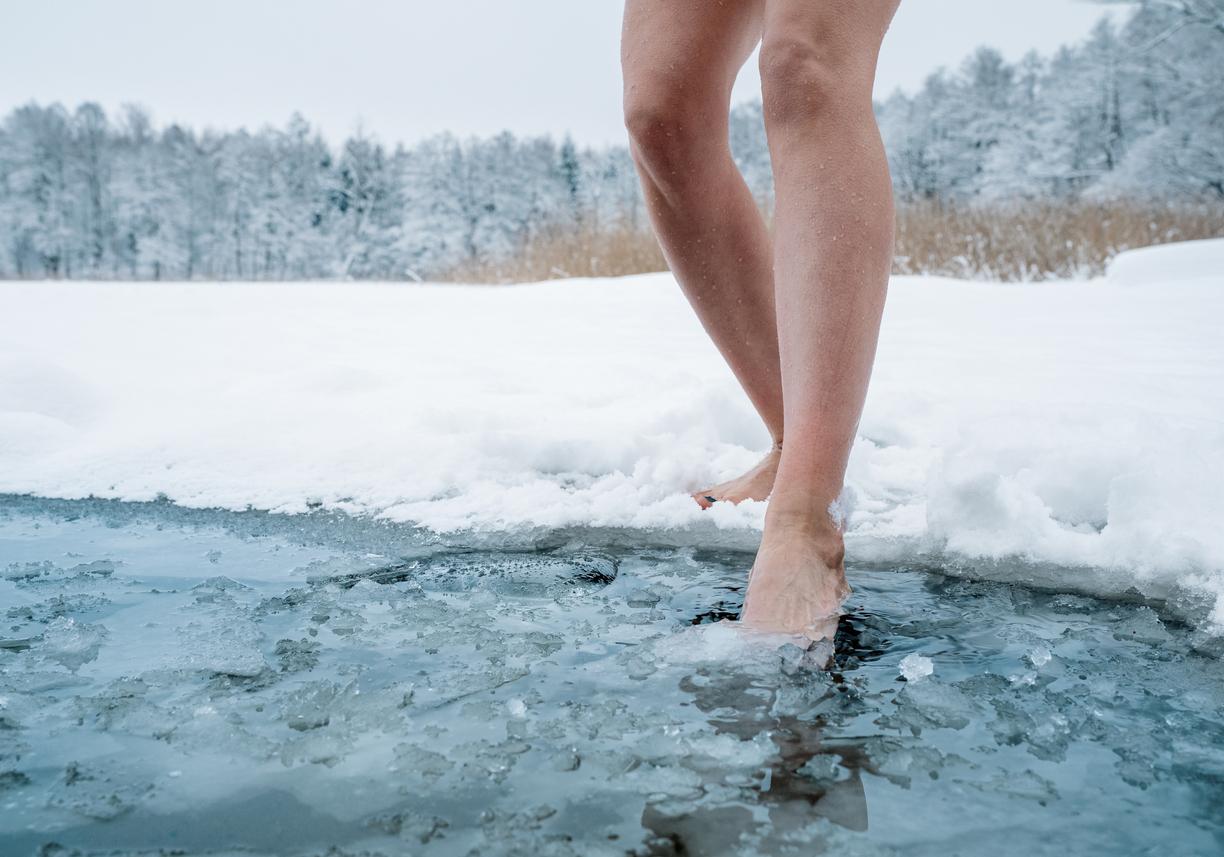Postmenopausal women who regularly swim in cold water experience significant improvements in their physical and mental health.

- After swimming in cold water, postmenopausal women experienced a reduction in anxiety, mood swings, and hot flashes.
- They identified five benefits of this ice bath: the calming and stimulating effect of the water, the company, the improvement of menstrual disorders, hot flashes and health in general.
- However, the authors warn of the “risk of hypothermia, cold shock, heart rhythm disturbances, and even drowning.”
Immersing yourself in cold water during the winter is an ordeal for many people. However, an ice bath could be beneficial for people suffering from menopausal symptoms. This is what British and Dutch researchers recently revealed in a study published in the journal Post Reproductive Health. As part of this work, the team recruited 1,114 women, 785 of whom were postmenopausal. Participants were asked to complete an online questionnaire about their cold-water swimming habits and the frequency of their menstrual symptoms.
Anxiety, mood swings: a reduction in psychological symptoms thanks to cold water swimming
According to the results, most of them were likely to swim in both summer and winter and wore swimsuits rather than wet suits. Patients reported that frequent bathing in cold water reduced their menstrual symptoms, including psychological manifestations.
In detail, postmenopausal women also reported significant improvement in anxiety (46.9%), mood swings (34.5%), bad mood (31.1%) and hot flashes. heat (30.3%). “The effects were more pronounced in people who swam longer,” clarified Joyce Harper, author of the research and professor at University College London (England). Additionally, the majority of volunteers (63.3%) said they do swimming specifically to relieve their menopausal symptoms.
They also said they believed the physical and mental effects of the cold water alleviated their symptoms. Five virtues of this aquatic activity were identified by the participants: the calming and stimulating effect of water, the company, the improvement of menstrual disorders, hot flashes and health in general.

“They may be exposed to the risk of hypothermia, cold shock, heart rhythm disturbances”
Despite the benefits of swimming in cold water, the authors were keen to point out that this sport carries certain risks. “You have to be careful when swimming in cold water, as they can be at risk of hypothermia, cold shock, heart rhythm disturbances, or even drowning. Depending on where they swim , water quality standards can also vary. Sewage pollution is an increasingly common problem in rivers and the sea in the UK. And, unfortunately, this can increase the likelihood of gastro- enteritis and other infections”, reported Joyce Harper.
Researchers say more work needs to be done on the frequency, duration, temperature and exposure needed to achieve symptom reduction. “However, we hope that our results can offer an alternative solution to patients struggling with menopause and encourage more women to take up sports.”















